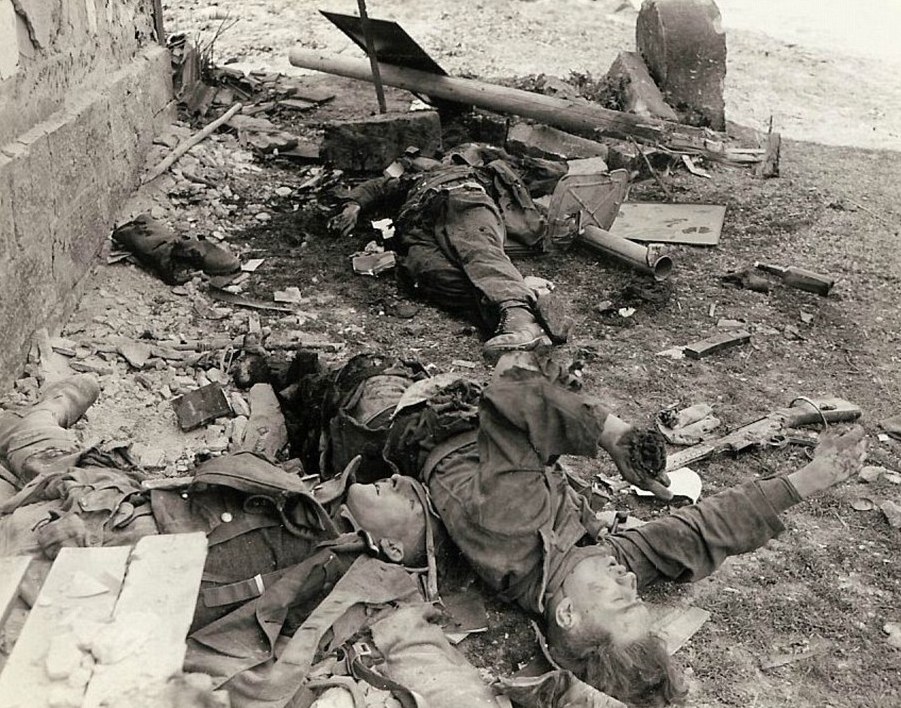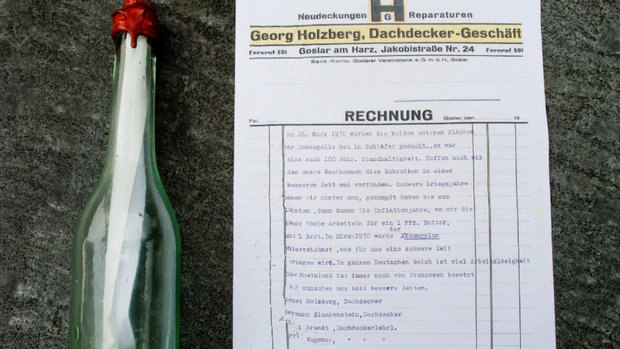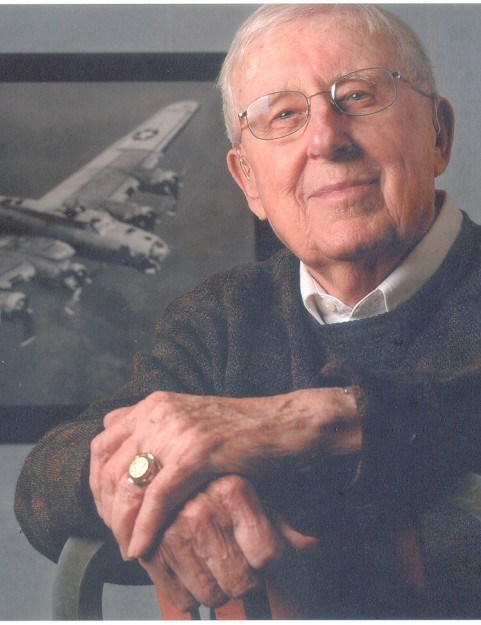A message in a bottle on the roof of a Goslar, Germany, cathedral was found by the grandson of the writer. An authentic lesson from history: “On March 26, 1930, four roofers in this small west German town inscribed a message to the future. “Difficult times of war lie behind us,” they wrote. After describing...
Tag: WWII
German Roofer Finds Message from Grandfather
For Bill
Back in 2014, I included a chapter in my book detailing Bill Schock's war experiences as they related to his reporting on the crash of Braniff International flight 250 in 1966.
A Final “Hangin’ Out the Warsh”
«This is Bill’s final column» out of countless ones he wrote over 71 years for the Falls City Journal. With this column, he said farewell; the Journal has been sold and moved to a much smaller space in downtown Falls City which it had occupied until 1950. It’s all extremely symbolic of the state of...
More Grief
This is kind of like how I feel about my (possibly four) upcoming surgeries: I don’t want to do this, but I have to, and I hate it. Received a kind e-mail yesterday telling me of the death of Bill Schock of Falls City, NE, on Thursday evening, six weeks short of his 100th birthday....
History as Prophecy
I have been attempting to read «Michael Burleigh's The Third Reich: A New History» since it came out in 2000. Instead, I've read «William Shirer's The Rise and Fall of the Third Reich» twice. Nothing wrong with anything I've read of Burleigh's work; quite the contrary. In fact, it has to do with how big the book is; the first edition is 950-plus pages and weighs a ton and I've had hand/wrist problems since, well, 2000. And I have Rise and Fall on Kindle.





